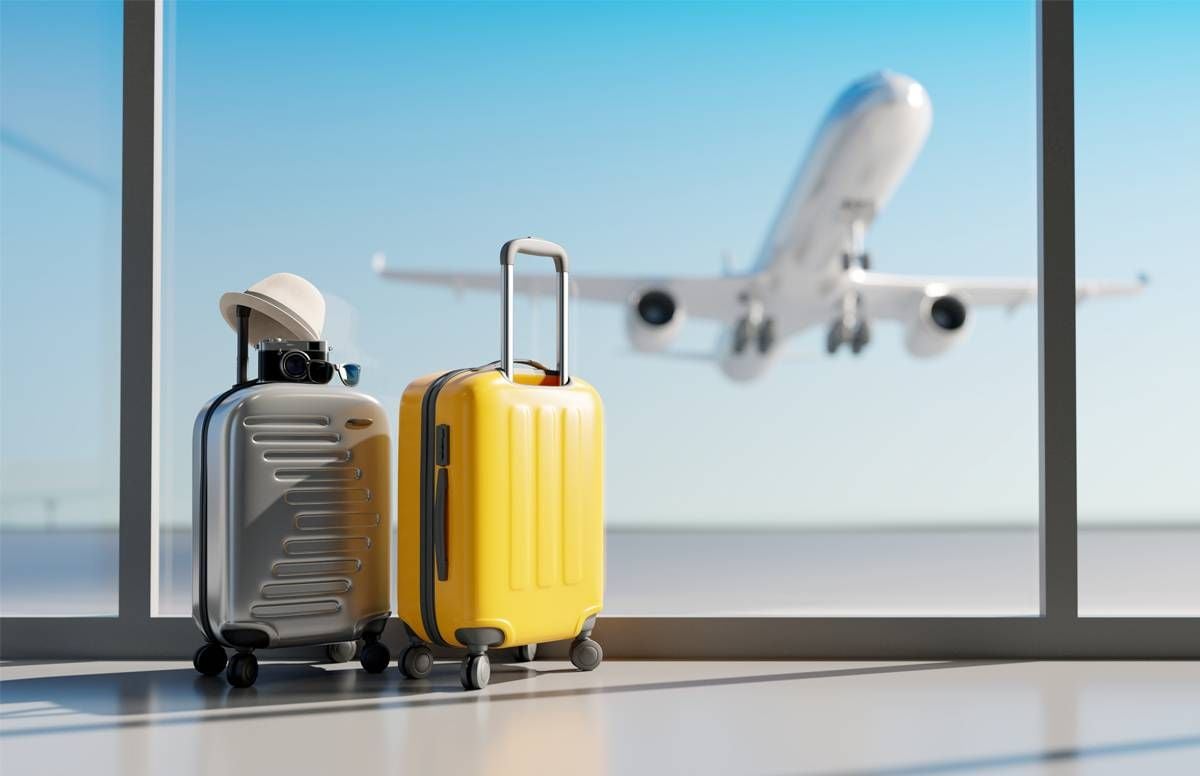The Best Travel Advice For You During COVID-19
Experts' tips on refunds, cancellations, travel insurance and booking new trips
Whether you had to cancel a vacation due to the coronavirus pandemic or are itching to plan one, you’re probably buzzing with travel questions. So, Next Avenue spoke to a few experts for their best advice.

After months of quarantine living, some people lately have begun leaving home and taking trips; more are expected to do so this summer and fall.
James Larounis, travel industry analyst for the Upgraded Points site, notes that the number of travelers going through Transportation Security Administration (TSA) checkpoints increased by 100,000 from March to April — to 230,000. By May 24, according to The Wall Street Journal, it hit 267,451. That’s still down markedly from over 2 million a year ago, though, since so many Americans are still fearful of traveling.
Now, to answers to common questions about vacations and the pandemic:
What should I do if I haven’t received a refund for a canceled trip this spring?
“I think there are a lot of delays in refunds for trips booked this spring due to the volume of people that are asking for them,” says Kareem George, principal for Culture Traveler and member of OASIS Travel Network in Franklin, Mich.
Many travel companies are currently offering incentives to re-book rather than cancel, says George.
Just ask Phillis Godwin, 76, of Shawnee, Kansas. She had a 7-day Caribbean cruise booked for her family March 15 to 22 and canceled as the pandemic began spreading in the United States. She had bought travel insurance, though it didn’t cover expenses related to a pandemic, the $600 hotel for a one-night stay in the port city or airfare.
“The cruise line eventually cancelled, but I had already set the cancellation of our trip in motion,” says Godwin. She has yet to receive any refund, though, and was only able to connect with a travel insurance claims adjuster in mid-May.
Her advice: keep calling and be persistent.
What if I’ve booked a trip for this summer?
Whether you’ll get a refund or a credit toward a future trip, George says, will be up to the policies of the airline, hotel, tour operator or other travel business. Hotels typically allow cancellations up to 24 hours in advance of the stay.
Many travel companies are currently offering incentives to re-book rather than cancel, says George. For instance, you might get a discount for a future lodging stay if you roll over your booking to a new date.
Larounis says that if your flight has been canceled or moved, you can typically get a refund. But, he advises, don’t cancel on your own just yet. “Wait for them to cancel first, and the ball will be back in your corner,” Larouinis says.
If I really feel like taking a trip, should I plan one for this summer?
No one can predict what the COVID-19 pandemic will do this summer, of course. Due to that unpredictability, shorter and more economical trips may be the answer.
“I think people will tend to choose more road trips this summer to places like parks, if they’re open,” says George. “I think people could also do shorter flights.”
If you do travel, expect to see new policies for social distancing and sanitation at airports, on planes, with tour operators and at hotels. You’ll likely notice hand sanitizers and masks at check-in points. And expect to find your hotel room will have been thoroughly cleaned and left vacant for a period longer than in the past.
Will it be safer to stay in an RV, a hotel, an Airbnb or a bed and breakfast or boutique hotel?
While you may think it would be safer this summer to travel and stay in an RV, Larounis cautions, “Some parks may still be shut down. And if they are open, the bathrooms and showers are typically communal, so they won’t necessarily be any safer [from COVID-19] than staying in a hotel.”
George says many of his clients plan to stay in smaller bed and breakfasts and boutique hotels, to avoid the chance of coronavirus contagion from larger crowds at bigger hotels.
“As for Airbnb, I see both sides,” says George. “If you’re not sure the restaurants will be open at your destination, you might have the desire to control the environment by bringing your own food. On the other hand, it’s really hard to standardize sanitation policies [at Airbnbs]. It’s a matter of comfort level and trust of the cleanliness of the people you’re renting from.”
Should I book international travel later this summer, this fall or into next year since many parts of the world are starting to reopen?
You’ll likely have more luck booking flights to major destinations globally, says George. “There’s so many more variables if you’re traveling to a remote location,” says George. “The key is to know the entry requirements, whether you’ll have to remain in quarantine once you arrive and how you will get around once you get there.”
As for cruises, George notes, they’ll depend on which ports are open.
Should I buy travel insurance?
That’s a personal decision and experts are split about it. But travel insurance policies haven’t included pandemic coverage. And policies vary enormously in what they’ll reimburse and what they’ll cost.
“You have to understand what you’re buying,” says George. “If you’re not working with a travel adviser, call the travel insurance company and make sure you understand all the allowances,” says George.
His recommendation: If you want to buy travel insurance, get a policy that lets you cancel for any reason. Just understand that such policies are generally much more expensive than other ones.
Seasoned traveler Godwin offers travel insurance advice based on her own experiencing cancelling her planned cruise in March. “Do not let them talk you out of covering all the expenses,” Godwin says. “I let the agent talk me out of covering the airfare, and I will be out $2,500 just for that.”
Should I book now for a trip this fall or in late 2020 or in 2021?
Hard to say. Safety from the pandemic is an unknown, and so is pricing. But there may be some good deals if you’re willing to take a chance.
“Right before the pandemic, I saw prices coming down and now we’re seeing them start to come down again,” says George.
Larounis predicts that, to win back customers, prices for flights and hotels will continue to fall or there will be large incentives, as the cruise industry already is offering. Cruise lines typically let you cancel months in advance.
What if I want to to travel but have underlying health conditions that make me more vulnerable to the coronavirus?
“See your doctor before taking a trip,” says George. “Be more transparent than ever about all of your issues, so your doctor can advise and give you input.”
And, he adds, ask your doctor whether activities you plan would be safe for you.


